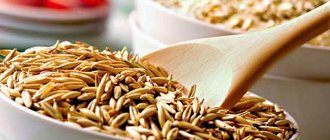Benefits and harms
For pancreatitis, it is necessary to drink drinks that do not irritate the inflamed tissues and mucous membrane of the pancreas.
Infusions prepared from rose hips have these properties. They muffle pain and accelerate the regeneration of organ tissue. Medicinal drinks are prepared not only from rose hips, but also from its roots. All parts of the plant contain vitamins of various groups, microelements, essential oils, flavonoids and other useful substances. The medicinal decoction can be drunk a day after the onset of an attack of pancreatitis. The rosehip drink begins to act immediately, relieving inflammation of the pancreas.
But rose hips also have a number of contraindications for use. People suffering from pancreatitis should consult a doctor before introducing wild rose-based drinks into their diet.
The following side effects may occur when using rosehip products:
- bile begins to be separated at a faster rate, which negatively affects the functioning of the inflamed pancreas;
- Rosehip drinks contain a lot of ascorbic acid, which contributes to irritation of the mucous membrane of the diseased organ.
All parts of rose hips contain vitamins of various groups, microelements, essential oils, flavonoids and other useful substances.
What are the benefits of this plant, namely the berries?
The use of the berries of this plant is very beneficial for the human body; let us consider in more detail the beneficial properties of the product:
- It helps the pain symptom either go away completely or become much weaker. The product has an antispasmodic effect.
- Relieves the inflammatory process of the organ and helps improve the metabolic process.
- Helps accelerate the regeneration of damaged organ cells.
- The drug helps lower plasma cholesterol levels and strengthens the walls of blood vessels.
- Frees the body from the manifestations of anemia and has a tonic effect on the body.
Using a decoction based on this plant is useful not only for people with problems in the pancreas, but also for healthy people.
Pros and cons of using rosehip preparations
Whether it is possible to drink rosehip decoction for pancreatitis can only be determined for sure by the attending gastroenterologist, who will study the individual characteristics of your disease and prescribe the appropriate treatment for a specific case.
However, we can confidently say that doctors often prescribe rosehip decoction for pancreatitis and cholecystitis as an additional means to relieve symptoms.
Rosehip decoction has both benefits and contraindications for pancreatitis:
- It is worth remembering that this decoction is a drug that can negatively affect the development of the disease if taken in unacceptable doses, concentrations, or in the presence of any incompatible factors.
- The drug should be stopped if the clinical picture shows excessive bile flow or excessive secretion of the mucous membranes of the gastrointestinal tract.
- Patients with pancreatitis are not recommended to take strong and rich decoctions. A concentrated drink can cause severe irritation of the mucous membrane and aggravate inflammatory processes in the gastrointestinal tract.
Despite the presence of possible side effects in case of overdose, reviews from those who took rose hips for pancreatitis are mostly positive. However, the question of whether it is possible to drink rose hips for pancreatitis must be resolved with a specialist.
Impact on the body
Is it possible to drink rose hips for pancreatitis? Definitely yes. Due to the content of all of the above substances, it has a beneficial effect on the body. Here are just some of its properties:
- Stimulation of cell regeneration.
- Significant reduction of pain (soothing and antispasmodic effects).
- Prevention of anemia development.
- Minimizing cholesterol levels in the blood.
- Increase in hemoglobin level.
- Increased body tone.
- Normalization of metabolic processes occurring in the digestive system.
So if you have pancreatitis, you can drink rose hips. Decoctions and infusions of this phytocomponent do not irritate the pancreas and gall bladder. And this is the most important thing in the treatment of this disease (and cholecystitis, by the way).
Treatment of the pancreas with chicory
Chicory normalizes digestive processes and facilitates the absorption of heavy foods. Despite the described properties, it is worth adhering to a therapeutic diet. The beneficial substances of the plant relieve the patient from bloating, constipation, diarrhea, and flatulence. Chicory for pancreatitis is not a cure, complementing the course of treatment and diet.
You need to be careful when purchasing plant powder: the price corresponds to the quality of the product. Having familiarized yourself with the composition of the product on the packaging, making sure that there are no harmful unnecessary components (flavors, taste substitutes), you can safely put the box in the basket. It is safer to purchase powder from pharmacies. For pancreatitis, chicory is drunk exclusively in the chronic form of the disease, on days of remission.
Complex therapy of pancreatitis
The root of the plant limits the absorption of cholesterol, leading the gastrointestinal tract to normal functioning. By regularly taking decoctions, the patient feels relief and the extinction of acute and unpleasant symptoms. Treatment consists of taking medicinal herbs, regularly taking medications, and strictly following the diet prescribed by the doctor.
Treatment during the period of weakened pancreatitis
The period is otherwise called remission. You should start taking chicory in accordance with the recipes suggested below.
It is important to observe a gradual increase in dosage.
There is no need to improve the taste of the decoctions; chicory tastes like coffee. You don't have to add sugar. The brewed root of the plant is a favorite drink of diabetics: a person drinks a sweet drink, but blood sugar does not increase, on the contrary, it decreases (hypoglycemic effect). For those who want to sweeten it, we give advice - add honey to the broth.
How to drink the decoction
For gastritis and pancreatitis, rosehip decoction is useful, but if the level of acidity in the stomach is elevated, then the medicine is not recommended. It will also be beneficial for cholecystitis due to its medicinal properties. If the disease worsens, you should first consult a doctor to choose the duration of therapy and dosage.
At the stage of remission
After the inflammatory processes have been stopped, the daily dosage of rosehip decoction will be approximately 200 to 400 ml. This will alleviate the patient’s condition and prolong the period of remission. The dosage is determined by the doctor; in most cases with pancreatitis, approximately a cup of drink is prescribed 1-2 times a day.
?enablejsapi=1″>
?enablejsapi=1″>
?enablejsapi=1″>
How to treat with rose hips
How to brew rose hips
How to properly collect and brew rose hips
In the acute stage
In the acute phase of pancreatitis, the decoction is only an auxiliary remedy. It is allowed to be consumed approximately 1-3 days after the start of anti-inflammatory therapy and after the attacks of vomiting have stopped. No more than 150 g per day is allowed. Dilute with water.
For chronic pancreatitis
The daily dosage of the decoction is 400 ml. The entire volume should be divided into 4-5 doses.
Restrictions
The use of rosehip decoctions or tinctures is not a universal method of treatment
Here it is also important to adhere to the dosages and recommendations of specialists. There are several simple rules that it is advisable to adhere to when consuming this product:
- if you have an acute form of inflammation or an exacerbation of the disease, then drinking rosehip drinks is strictly prohibited;
- decoctions should be slightly concentrated, which will eliminate negative effects on the body;
- No sugar or honey is added to drinks. These components have a bad effect on the pancreas, which can lead to an exacerbation of the disease;
- Before use, be sure to consult your doctor to prevent relapses.
The use of rose hips is not recommended in the following cases:
- the presence of various diseases of the heart muscle and blood vessels. These may be thrombophlebitis, endocarditis and other similar diseases;
- tooth sensitivity or the presence of other diseases of this organ. This is due to the fact that substances that provoke the development of diseases enter the body from rose hips;
- acute pancreatitis. Treatment in this case is selected only individually by an experienced doctor. The use of rose hips without permission in this case is not recommended;
- stomach diseases. This often includes all types of ulcers that occur in acute form, causing internal bleeding.
Making rosehip jelly
Kissel based on the fruits of this plant is used in cases of aggravated chronic pathology.
This type of medicine is not only tasty, but also easy to prepare. Preparation proceeds as follows:
- Take a liter of water and one hundred grams of rose hips.
- During the cooking process, add a little starch as needed, it is needed to regulate the thickness.
At the time of exacerbation of the disease, you can use it three times a day; in fact, you can get by with it and not eat anything else.
This type of medicine is similar to a dessert made from berries. You should eat no more than two hundred milliliters of this product at one time.
During the period of remission of the disease, the jelly is made thicker, the cooking process takes no more than 2 minutes. The patient takes it warm and not in large sips.
Its use is also permitted in the case of biliary pancreatitis. Let's take a closer look at the positive effect this method of therapy has:
- It has an enveloping effect that spreads to the stomach, which helps reduce irritability.
- Affects the normalization of bowel movements.
- Helps temporarily get rid of the feeling of hunger and fills the human body with necessary nutrients.
The pancreas is badly affected by bee products and sugar because they irritate the walls of the organ.
Therefore, their addition to decoctions or infusions is not advisable. During therapy, you need to be attentive to your health, because home treatments can affect insulin synthesis, its reduction, and can lead to problems with bowel movements, namely constipation.
What parts of rose hips are useful?
Rose hips contain many useful substances. The seeds of this shrub plant have no toxic components, which makes it possible to prepare various drinks from it and give them to adults and children to maintain immunity and prevent vitamin deficiency. This allows many uninformed people to consider the cinnamon rose hips a useful plant for all diseases. This plant has its purpose, and its benefits should not be exaggerated.
Preparations from rose hips have a strong choleretic effect, which becomes dangerous in case of cholelithiasis, because such drugs contribute to blockage of the bile ducts with sand and stones moving along with the bile. This leads to severe pain in the right side, can cause obstructive jaundice, and in severe cases lead to rupture of the gallbladder. If the blockage of the bile duct continues for more than 3 days, the pancreas becomes involved in the inflammatory process.
Dysfunction of the biliary tract often causes exacerbation of chronic pancreatitis. Doctors know of many cases where a person ended up in the hospital with acute pain in the right side due to the fact that for several days he drank a decoction of rose hips for gallstone disease and chronic pancreatitis.
Rosehip roots have fewer acids that are aggressive to the liver, they have a gentle effect on the digestive organs and improve all processes. They are traditionally used by hunters to prepare medicinal decoctions for abdominal pain and indigestion. A decoction of rosehip roots eliminates inflammation in the digestive organs and improves redox processes in the body. They contain microelements necessary for the normal functioning of the internal secretion organs. This allows anyone who has contraindications for taking infusions and decoctions of rose hips to take a decoction of rosehip roots instead of its fruits.
To prepare a healing drink, you need to take dry crushed rosehip roots and pour boiling water over them. For a glass of water you will need 2 tbsp. l. finished raw materials. The broth is boiled for 15 minutes, cooled, filtered, and brought to the original volume. The finished form is taken 1 glass 3 times a day for gallstones and chronic pancreatitis for 10 days, then take a week's break, and if necessary, the course of treatment is repeated.
How to prepare roots
The roots are dug up in late autumn, when the maximum amount of nutrients accumulates in them. Small adventitious roots extending from the central root are harvested. They are easier to dry and use for their intended purpose. Since the peculiarity of rose hips is the formation of a bush from an adventitious root, they contain all the substances necessary for the treatment of chronic pancreatitis. To prepare the roots, dig up the ground around one of the shoots and separate it with a bayonet shovel from the main root system.
The dug up roots are cleared of soil, washed, dried in the shade in a ventilated room, on a stove or in an electric dryer. Finished raw materials should break when bent. Then it is ground in a coffee grinder and used for its intended purpose. The roots can be finely chopped with scissors or chopped with a sharp knife. Fresh rosehip root can be used.
Raw materials are stored in canvas bags for no more than 3 years. The chemical composition of the roots has not been fully studied, but doctors confirm their benefits in the treatment of diseases of the digestive system.
Pancreatic pathology such as pancreatitis is a life-threatening disease.
If therapy is not started on time, if it is incorrect or not suitable for the patient, there is a high probability that the patient’s life may be cut short.
After studying this article, you will find out whether it is possible to use rosehip decoction for pancreatitis, about the beneficial properties of the plant, and also learn recipes for preparing this plant for the treatment of pathology.
Herbal medicine gives excellent results
Since cholecystitis is accompanied by inflammation, its standard therapy often includes antibiotics and other potent drugs. But treatment with folk remedies can also be very effective, especially if it is carried out under the guidance of a doctor.
In this case, the question becomes especially important: what herbs can you drink? If cholecystitis is acalculous, then the set of medicinal herbs that both increase and decrease the tone of the ducts is very diverse. You can even take them on your own without fear.
But if there are already stones in the bladder, then special care is required in this case, since choleretic preparations cause severe pain and can even cause blockage of the bile ducts. Then only emergency surgery can save a person.
In order to determine which herbs to treat a particular person, you must first establish the type of cholecystitis, what caused it, and what concomitant diseases are present. Then you can try different herbal mixtures.
Herbal recipes for hypomotor dyskinesia are mostly based on barberry, immortelle sandy, peppermint and corn silk.
Herbal recipes for hypermotor dyskinesia include rowan, centaury, chamomile, oregano, caraway, shepherd's purse, yarrow, and calamus.
An almost universal remedy that can be used for any type of disease is milk thistle seed oil.
To relieve spasms, you can use anise, fennel, St. John's wort, bloodroot, and rhombifolia.
Along with the use of special preparations, it is recommended to use general strengthening agents, such as ginseng, eleutherococcus, and aralia.
Herbal decoctions and infusions can not only be taken orally, but also added to bath water. Here is a recipe for one of the very effective and surprisingly pleasant procedures: a mixture is made consisting of 5 parts of sweet clover, 10 parts of pine needles, 2.5 parts of small periwinkle, 2.5 parts of calendula, 2 parts of hop cones, 2.5 parts of birch leaves, 1.5 parts mountain arnica, 1.5 parts celandine. One hundred grams of this mixture should be poured with two liters of boiling water and allowed to cool completely. Add the strained mixture to the bath water. The duration of the procedure is 15 minutes.
Recipes from readers
Recipes for rosehip decoction are presented in a variety of quantities, so you can choose the appropriate preparation method depending on the general course of the disease. Below are the most popular techniques from our readers.
Rosehip decoction for exacerbation of pancreatitis
To prepare the decoction, you need to pour 200 grams of dried berries with 1 liter of boiling water and leave for 2-3 hours or simmer for 15 minutes in a water bath. The finished tincture is diluted with water in a 1:1 ratio and taken 3 times a day, 70 ml.
This remedy can be taken with a mild exacerbation, since a severe course of the disease requires the administration of special drugs intravenously and the observance of therapeutic fasting with the use of warm liquids.
Preparing rosehip decoction tincture in a thermos
In order to prepare a classic rosehip decoction recipe, you need the following ingredients:
- Rose hips - 2 tbsp. Spoons;
- Honey-1 tbsp. Spoon;
- Sugar - 2 tbsp. Spoons;
- Water - 1 liter.
The thermos is pre-treated with boiling water, and then dried berries are added. Sugar is added to the container and boiling water is poured, stirred until completely dissolved, cooled to room temperature and used for its intended purpose in a certain dosage.
Rosehip root decoction
The recipe for preparing a decoction of rosehip roots is carried out according to the following algorithm:
- Preliminary root cleansing;
- Pour boiling water over 50 grams of crushed roots;
- Boil the resulting mixture for 20–25 minutes;
- Infusion of the decoction for several hours.
The finished product is taken 3 times a day according to Art. Spoon regardless of food intake. The decoction is effective in the treatment of pancreatitis and cholecystitis and for preventing exacerbations.
Rosehip berry decoction
The preparation of a decoction of rose hips is carried out according to two different algorithms. The first scheme is based on the following steps:
- Berries in the amount of 2 tbsp. Spoons are filled with 500 ml of water;
- The resulting mixture is brought to a boil in a water bath and boiled for 15–20 minutes;
- The finished broth is cooled and filtered from unnecessary impurities.
The second recipe for preparing the decoction has a simpler scheme. Dried berries are poured with boiling water and infused for 40–60 minutes. The finished product is used as directed in a certain dosage before or after meals.
Rose hip jelly
Rosehip jelly for pancreatitis is a dish that can be used instead of the main meal, since starch has restorative properties and has a beneficial effect on the functioning of the pancreas.
Required ingredients for preparation:
- Ground rose hips - 100 grams;
- Warm water -2 liters;
- Starch - 50 grams.
The ground berries are poured with water and brought to a boil over low heat. Starch, previously dissolved in cold water, is added to the boiled mixture and brought to a boil again. You can add a small amount of sugar to the finished jelly, but during periods of exacerbation of pancreatitis, it is necessary to completely eliminate all sweeteners.
Rosehip tincture for the prevention of pancreatitis
To prevent pancreatitis, you can drink a non-concentrated rosehip decoction daily in the amount of 250–400 ml before or after eating. To prepare the tincture, pour 100 grams of dried berries with 1 liter of boiling water and leave for 20 minutes. Cool the finished product and take it as directed for a certain period of time. It is best to periodically carry out preventive courses and drink the decoction daily for 2-3 weeks.
Rosehip with viburnum
This is a very good healing combination. Viburnum is rich in essential oils, resins, viburnin, tannin, phytosterols, pectins, tannins, organic acids and other useful components.
It enhances the effect that rosehip produces on the body. Viburnum is known for its antipyretic, anti-inflammatory, antimicrobial, healing, strengthening and cleansing effects. It also normalizes water-salt metabolism, intestinal microflora, improves gastrointestinal motility and appetite. Of course, these are not all of its benefits, but they are enough to understand why viburnum is recommended for pancreatitis.
Preparing an effective medicine is simple. You need to mix 15 grams of rose hips and viburnum in a thermos, and then pour 1 liter of boiling water over them. The resulting drink must be infused for 8 hours. Then you will need to strain it through cheesecloth. Then you can use it - 90 ml 5 times a day is enough.
Rosehip for pancreatitis instructions for use
This disease is an inflammatory process in the pancreas. In the absence of suitable treatment and non-compliance with certain rules, pancreatitis worsens and can cause complications. It is not necessary to take pills, because plant-based folk remedies also do a good job of treating the disease. For example, rosehip decoction is widely used in folk medicine; in combination with diet, it will help eliminate symptoms and alleviate the patient’s condition.
Rosehip decoction for pancreatitis: is it possible or not?
Since the decoction is used to treat various diseases, many are interested in the question: can it be taken by people diagnosed with pancreatitis? Yes, the decoction will only benefit you, but for this you need to prepare it correctly and take it according to a certain scheme.
What beneficial properties does rosehip have for pancreatitis? It gently relieves inflammation and spasms, promotes rapid regeneration, strengthens local and general immunity. This effect is due to its rich composition, because the berries contain vitamins A and C, K, E, B vitamins, essential oils, tannins, and minerals. Remember that decoctions and infusions of rose hips are not an independent treatment; they must be used in combination.
Rosehip for pancreatitis: how to prepare a decoction?
According to reviews, the product helps improve well-being and relieve pain and discomfort. You can combine it with other treatment methods, also do not forget about the therapeutic diet, without it you will not achieve the desired effect. Sugar or other sweeteners should not be added to prepared decoctions and infusions.
We recommend drinking the prepared drink through a straw, as it can damage the enamel due to the high content of vitamin C. Rinse your mouth after drinking the drink. How to prepare a rosehip decoction for the treatment of pancreatitis: pour 100 grams of dry berries with 500 ml of boiling water. Place in a water bath for 10-15 minutes, remove and let cool.
Strain and add the same amount of water. We take the decoction in the amount of a quarter glass, three times a day, half an hour before meals. Decoction recipe No. 2: grind the dry berries in a coffee grinder, then pour two tablespoons of the raw material with 250 hot water at a temperature of 80 degrees. Place in a water bath to heat for 15 minutes. Leave to cool and strain. We dilute with water in equal quantities and take according to the same scheme as presented above.
You can also prepare a decoction based on dry rosehip roots, you can buy them at the pharmacy: finely chop 40 grams of roots, pour in 250 ml of water, put on low heat and wait for the liquid to boil. Continue cooking for 15 minutes, leave to cool.
Take 50-80 ml 3 times a day. Rosehip infusion for pancreatitis: to prepare it you will need a thermos. Pour 100 grams of crushed berries into 1 liter of water heated to 90 degrees. Close the lid and leave for 3 hours. We filter. Take 100 ml 3-4 times a day. Do not exceed the indicated dosages and do not use a lot of berries to prepare decoctions, as a concentrated solution can cause complications.
Rosehip decoction: contraindications
Despite the fact that the drug helps in the treatment of pancreatitis, this does not mean that it has no contraindications. Rosehip can aggravate some diseases, so it should not be used for vascular diseases, poor circulation, heart disease, skin problems, stomach ulcers and gastritis, the presence of salts in the body, constipation, bile stagnation.
If after consuming the decoction or infusion you experience abdominal pain, constipation, or redness on the skin, we advise you not to continue using the product. You may be allergic to rose hips. Is it possible to use rosehip decoction for pancreatitis? Yes, in reasonable quantities it can alleviate the patient’s condition and speed up recovery, and eliminate the symptoms of the disease.
Reviews
To conclude the topic regarding whether rose hips can be used for pancreatitis, I would like to draw attention to the opinions of patients. Many people who have tried products based on this component are pleased to note their positive effect, which makes itself felt in the shortest possible time.
Attention is also often paid to the pleasant taste that distinguishes drinks prepared according to the recipes discussed above. People who do not have gastrointestinal problems even prepare them as an alternative to tea. An infusion or decoction of rosehip has one big advantage - it has no effect on the nervous system. Therefore, this drink can be consumed at night.
By the way, everyone is strongly recommended to at least sometimes give their body a preventative relief and take a decoction or infusion of rose hips for 10-14 days. This will definitely have a better effect on your health and immunity.
Contraindications
In order to exclude the development of negative side effects when taking rose hips, it is necessary to take the drug in a strictly prescribed dosage according to a correctly prepared recipe. Consumption is best avoided or limited during severe exacerbation of pancreatitis.
It is not advisable to add sugar or other sweeteners to the prepared rosehip decoction, as they irritate the pancreas. To obtain the proper effect, it is best to obtain prior consultation with a qualified specialist.
When consuming rosehip decoction, a patient may experience negative side effects:
- Formation of constant constipation;
- Decreased normal flow of bile;
- Reduced insulin production during pancreatic function, which leads to diabetes.
Rosehip decoction is also contraindicated in the following cases:
- Ulcerative formations in the gastrointestinal tract;
- Acute form of gastritis;
- Damage to tooth enamel and development of caries;
- Cardiovascular diseases (heart muscle dystrophy, thrombophlebitis, endocarditis).
Medicinal recipes or chicory therapy
This therapy belongs to the group of folk remedies. When treating a disease, the pancreas is given complete rest, without the burden of digesting heavy food.
It is allowed to take the healing drug on the thirty-first day after an exacerbation of pancreatitis, having first asked for the doctor’s recommendations, only if the patient is feeling normal. The first use of the decoction should not be strong in effect and concentrated; prepare the drink according to the given recipes:
- Recipe No. 1. Brew small plant roots with water and milk in a one to one ratio. 200 ml of water and milk – the capacity corresponds to a full glass. For the indicated volume you will need half a teaspoon of dried plant powder. Daily use of the drink is done twenty minutes before each meal. Gradually increase the concentration of the decoction, increasing the volume of the powder to the volume of a full teaspoon.
- Recipe No. 2. It is convenient because the prepared decoction can be drunk during the day at work, on a walk, or at home, taking a sip from a bottle. To prepare, pour two teaspoons of the dried roots of the plant into a container of boiling water. Cook the broth for five minutes over low heat. It is better to take the cooled and strained decoction. The therapeutic course is three weeks. After completing treatment, pause for a week and resume again. Has an analgesic effect and cleanses the liver.
- Recipe No. 3. The constituent elements are chicory, burdock, and dandelion (yellow). Prepare a mixture of herbal powders in equal quantities in a total volume of one teaspoon. Pour boiling water over the powder moved in the glass and let it brew for eight hours. Use in the morning, at lunch, in the evening before meals.
Rose hip recipes
Let's take a closer look at several recipes that are based on rose hips, its berries or roots:
Recipe 1
- Take a glass of water, which is from 80 to 90 degrees, add two tablespoons of pre-chopped table berries to it.
- Heat this mixture for no more than 25 minutes in a water bath.
- Let it sit for about 45 minutes at room temperature.
For a pathology such as pancreatitis, a decoction prepared according to the recipe suggested above is used.
Recipe 2
A decoction or tincture from the root system of the plant, let’s look at the recipe in more detail:
- It is necessary to use peeled roots.
- Pour fifty grams of previously peeled root with water (two glasses).
- It is necessary to boil the mixture for a quarter of an hour.
- The use of this decoction is divided into three doses of three tablespoons.
Recipe 3
A decoction of the plant's berries. The cooking process is as follows:
- It is necessary to pour the berries into a glass bowl, you need two tablespoons, and add 2 glasses of water.
- Warm up in a water bath for 15 minutes.
- Afterwards, you need to cool it and strain through gauze.
It is important that before using any traditional medicine and medications, you must consult a doctor so as not to harm your body.
Use of rosehip decoction for exacerbation of pancreatitis
Rose hips are often prescribed to prevent the occurrence of pancreatitis, but in case of exacerbation, the amount of the drug consumed should be controlled by the attending physician, since an increase in the diuretic effect can place unnecessary stress on the pancreas.
The decoction can be taken several days after the acute inflammatory process has subsided. The daily dosage of the medicine should not exceed 150–200 ml. It is recommended to administer small dosages of the tincture diluted with water in a 1:1 ratio without adding sugar.
In case of acute pancreatitis, taking syrup with rosehip is prohibited, since a large amount of sugar can aggravate the course of the disease and cause the development of side effects undesirable for the body:
- Stimulation of increased work of the gastric mucosa due to the effects of ascorbic acid;
- Obtaining a strong choleretic effect.
Admission rules
So, is it possible to drink rose hips for pancreatitis? It’s clear. Now it’s worth talking about how to do this.
Experts recommend taking the decoction three times a day after meals, 250 ml (one glass). However, the rules of admission always depend on the general course of the disease and the characteristics of the patient’s body.
If there are contraindications, it is better to refrain from taking rose hips for pancreatitis of the pancreas, so as not to cause more harm to yourself. And before starting such herbal medicine, of course, you need to consult with your doctor regarding its appropriateness.
There are some other nuances that need to be taken into account:
- After taking the decoction, it is recommended to rinse your mouth with water, since ascorbic acid has a negative effect on tooth enamel.
- Drinking the composition on an empty stomach is prohibited. This is fraught with an increase in acidity levels, which leads to digestive problems.
- At the same time, it is recommended to use infusions of dill, parsley and celery. Products made from these components soften the overall effect of rose hips on the body.
What are the benefits of rose hips?
Rosehip is a shrub with red berries containing seeds.
They contain many useful substances:
- vitamins B2, C, E, K and P;
- riboflavin;
- carotene;
- essential oils;
- salts of phosphorus, calcium, potassium, magnesium and iron;
- malic and citric acid;
- lycopene;
- phytoncides;
- tannins.
The benefits of such a multi-component composition are obvious. Due to this, rose hips are used for the treatment and prevention of many diseases:
- Viral infections (ARVI, acute respiratory infections). Ascorbic acid contained in berries helps strengthen the body's immunity and resistance to these diseases.
- Vitamin deficiency and chronic fatigue - the vitamins in rose hips help strengthen the immune system and restore energy.
- Cardiovascular system disorders - this plant normalizes blood pressure and strengthens blood vessels.
- Wounds, burns and other skin lesions. Rosehip is able to improve the functioning of the endocrine glands, as a result of which the production of hormones is activated and the restoration of the skin.
- Problems with the gallbladder and liver - rosehip acts as a choleretic agent, as a result of which these organs are cleansed.
- Eye diseases and bleeding - the fruits have a general strengthening property, which helps in the treatment of these lesions.
- Kidney pathologies - berries act on the body as a diuretic, which improves kidney function.
Attention! For medicinal purposes, a decoction or infusion of berries is most often used, but roots, branches and leaves are no less useful. They are used in dry form to eliminate problems with the liver and gall bladder.
Rosehip is useful for the liver because it eliminates inflammation and has a positive effect on affected hepatocytes
This is especially important for ulcers or tumors. A decoction of berries is also used for cholecystitis, cirrhosis, oncology, liver inflammation, hepatitis C, etc.
The substances that make up the fruit normalize the production of bile, as a result of which the body is cleansed of waste and toxins, as well as stabilizing weight and improving overall health.
Consumption of rose hips is also useful for fatty hepatosis, as this plant prevents the degeneration of liver cells. And the general strengthening effect promotes rapid recovery after illnesses.
https://youtu.be/mP5QzbKbAvY
?amp;rel=0″>
Features of cleaning with rose hips
Treatment of the liver with rose hips requires compliance with several basic rules:
- Make sure there are no intestinal diseases, kidney diseases, diabetes mellitus or cholelithiasis. To do this, it is recommended to consult a doctor before starting treatment.
- Start preparing for cleansing in advance, namely change your diet (eliminate junk food, alcohol).
- Strictly follow the dose, course duration and recipe for preparing the product. Any independent changes in these indicators can lead to negative consequences.
How to cook rose hips
The basic principle of cooking is working with boiling water. The berries come into contact with hot water, and depending on the recipe, a decoction or infusion is obtained. The only difference is that to make a decoction, the fruits are brewed for some time, and the infusion is infused in an airtight container.
The preparation proportion is 1 to 10. For a full decoction of 20 g of rose hips, you need approximately 200 ml of water (one regular glass). The berries are poured into a container and filled with water. You need to heat it on the stove until it boils, then cook the fruits with the lid closed for 10 minutes. Set aside the resulting liquid and strain.
Rosehip decoction for pancreatic diseases
Rosehip decoction can rightfully be called emergency medicine No. 1 if you have an exacerbation of pancreatitis. Only the most inexperienced “members of our club” :) who recently and suddenly joined, do not know about it. In any case, I think that this information needs to be popularized.
Attention! Freshly brewed rosehip tea acts quite quickly, since it contains the maximum amount of vitamins, phytoncides and other beneficial substances in the first hours. Sometimes 15 minutes is enough to relieve severe pain
Try drinking it and just lying quietly; preferably, having renounced earthly concerns. The approximate dose, in this case, is somewhere around 100 ml, for a person of average size. The temperature should be pleasantly warm and in no case hot or cold, so as not to irritate the gastric mucosa.
It is also great for everyday tea drinking instead of traditional tea, since it has a fairly neutral taste in the concentration recommended for use for inflammation of the pancreas.
Since all strong decoctions are eliminated in our case, the rosehip decoction does not need to be made too rich, because we must also take into account that in the majority of people, pancreatitis is adjacent to gastritis, which should also not be provoked. Just in case, I will mention the obvious that for pain-relieving purposes during exacerbations, rosehip decoction is drunk without sugar or honey in its natural form. (!) Rosehip, in many respects, *has a more balanced effect on the body than black or green tea. Moreover, you shouldn’t give it up once you go into remission. To summarize:
Medicinal properties of rosehip decoction:
- Pronounced antispasmodic effect, greatly soothes pain.
- Gradually helps relieve inflammation of the pancreas.
- And not only the pancreas, but also the stomach, liver, and intestines.
- It has a tonic effect on the entire body, gives strength, in other words.
- Stimulates the process of carbohydrate metabolism, which means it will help keep you warm in cold weather.
- Contains a lot of vitamin C, which is extremely (!) important when the body is exhausted after illness and intensive drug treatment. For comparison: ascorbic acid is 10 times more than in black currants and 50 times more than in lemons. Obviously, this is the most accessible remedy for combating anemia.
- It has good bactericidal properties, which further strengthens the immune system.
- Allows the regeneration process to better manifest itself in damaged pancreatic cells.
- Reduces the level of unnecessary cholesterol in the blood.
- Contains enough essential vitamins and minerals to have a beneficial effect on the condition of the walls of blood vessels with more or less long-term use.
The recipe for preparing a decoction of rose hips for pancreatitis is very simple: For example, I take just a handful of washed and sorted berries in 1.5 liters of artesian water; in this case, they can be filled with cold water.
To best preserve the extractive substances in the broth, place an enamel pan over medium heat, cover with a towel and slowly bring to a boil. It’s good if you can stretch out the gradual heating process for more than half an hour. When the water boils, you can turn off the burner and wait at least another 15 minutes for the broth to be ready. After which it can be consumed.
Another great brewing method: pour boiling water over the ground berries directly in a thermos and leave to steep overnight. Perhaps the article will be supplemented as interesting information becomes available. And I wish you all the best and no exacerbations
Tincture in a thermos
This is the easiest remedy to prepare. It is made from the following ingredients:
- rose hips - 2 tbsp. l.;
- water – 1 liter;
- sugar – 2 tbsp. l.;
- honey - 1 tbsp. l.
The thermos must be thoroughly treated with boiling water, and then dried berries must be added inside. Immediately add sugar, then hot water. Stir the resulting composition and leave to infuse. The infusion should cool to room temperature. After this you can take it.
The indicated volume is enough for four doses - one for the whole day and the morning of the next day.
There are many different ways to prepare a drink from rose hips to treat pancreatitis. For any stage of the disease, a separate recipe for preparing the drug is preferable.
Acute illness
In the acute phase of the disease, take 20 grams of dried berries and pour a liter of boiling water. The dishes are placed on low heat and left for an hour. Then the broth must be removed from the heat and left to infuse for one hour.
Before taking the decoction, dilute it with cool boiled water at a rate of 1 to 1. Adding sugar to the decoction is highly undesirable. Drink 50 grams of decoction three times daily.
To prepare a decoction of rose hips, you will need to chop 2 tablespoons of dry berries in advance. The resulting raw material is poured into a glass of water at a temperature not exceeding 80 degrees. The mixture is infused for a quarter of an hour in a water bath. Then the broth is removed from the heat and infused for up to 45 minutes. The drink is taken in a manner similar to that described above.
To treat diseases of the pancreas, use the roots of the plant. To prepare a healing infusion, you need to wash, dry, and then grind 50 grams of raw materials. You can cut the root into small cubes. Pour the resulting raw material with a glass of cold water and place on low heat. After the water boils, keep it on low heat for another 20 minutes. The resulting decoction is taken several sips three times a day.
At the remission stage, rosehip decoction is prescribed as an auxiliary therapy. The product eliminates inflammation and prevents the development of fibrotic changes in the tissues of the pancreas.
It is recommended to be treated with teas and syrup based on rose hips, and to brew flowers, roots and leaves of the plant. Strong decoctions should be taken with caution; they exhibit a pronounced diuretic effect.
Excess sugar will irritate the pancreas. You can start brewing rose hips at the recovery stage.
When prepared, rose hip decoction does not lose its beneficial properties, and when taken continuously, the product has a tonic and anti-inflammatory effect on the body.
To prevent pancreatitis, you can drink a non-concentrated rosehip decoction daily in the amount of 250–400 ml before or after eating. To prepare the tincture, pour 100 grams of dried berries with 1 liter of boiling water and leave for 20 minutes. Cool the finished product and take it as directed for a certain period of time. It is best to periodically carry out preventive courses and drink the decoction daily for 2-3 weeks.
In order not to cause harm to the body, you should not exceed the dosage of taking the medicinal rosehip drink. Your doctor will help you determine how much decoction you should take.
Rose hips contain a lot of vitamin C, which is beneficial for the body. But in case of diseases of the pancreas, this vitamin can also cause harm to the body: an improperly prepared decoction can cause irritation of the mucous membrane. In this case, baking soda will help reduce the acidity level.
You are allowed to brew and take up to 150 ml of decoction or infusion of rose hips per day.
Drink in small sips, without adding sugar. It is preferable to dilute the finished infusion with boiled water in half.
After stopping the acute phase of the disease, gradually increase the daily dosage of the infusion to 2 glasses.
Constant intake of the infusion will prevent relapses of the disease for a long time. The dosage of the drug is selected individually for the patient.
Despite the pronounced anti-inflammatory and immunostimulating effects of rose hips, it is necessary to strictly adhere to the dosage of the drug and undergo regular examination by a doctor. It is better to refuse a decoction with a high concentration. You should not add honey or sugar substitutes to the medicine. This leads to a noticeable deterioration of the condition.
If you take it carelessly or have an individual intolerance, beware of unwanted effects. Intestinal disorders - constipation, diarrhea. Disturbances of normal bile secretion processes. Disorders of insulin synthesis by the pancreas. Even the proven rosehip decoction has a number of contraindications for use.
It is not recommended to ingest a decoction of the plant’s fruits for those who suffer from the following diseases:
- Acute or chronic gastritis with increased secretory activity.
- Peptic ulcer of the stomach or duodenum.
- Violations of the integrity of tooth enamel and dental caries.
- Vascular diseases of the lower extremities - thrombosis and thrombophlebitis.
- Endocarditis of various origins.
- Dystrophic changes in the myocardium. In this case, it is recommended to resort to infusions and decoctions of other medicinal plants.











